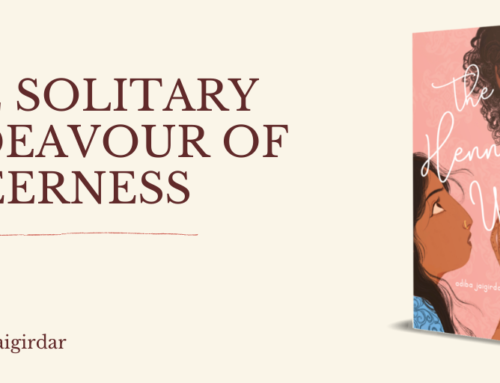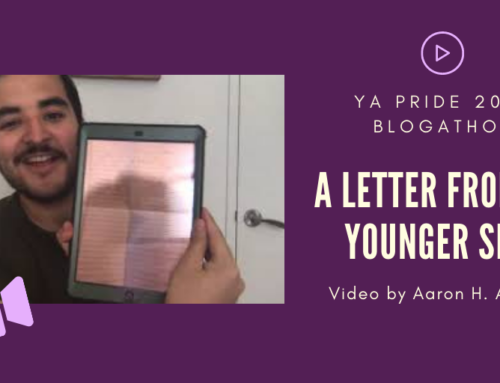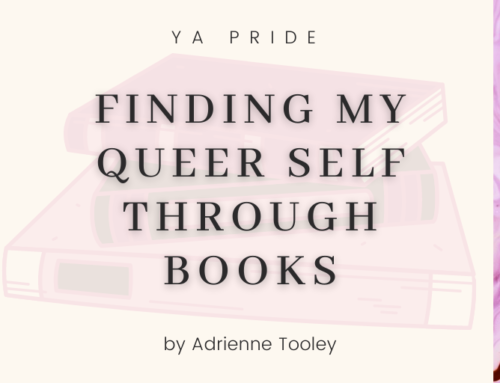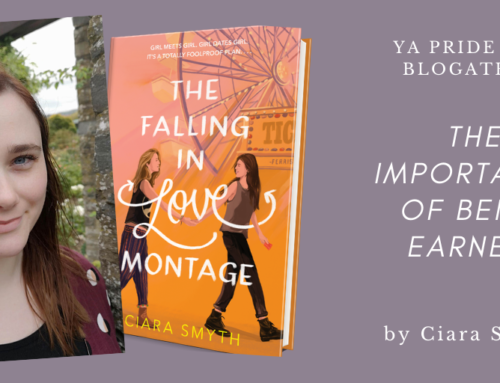Trans Awareness Week: Day #7
Previous Posts: We Need Trans Books… But We Really Need Trans Writers by Elliot Wake, Second Trans on the Moon by Kyle Lukoff, How the Fox Became by Fox Benwell, Interview: Alex Gino, The Room Where it Happens by Parrish Turner, Trans Stories Are Human Stories by April Daniels, Center Trans Voices: Introduction to Trans Awareness Week Series by Vee S.)
by Anya Johanna DeNiro
My new (unpublished) novel Glitchblood is the story of an 18-year-old trans woman named Zoey. She happens to be an assistant dragon trainer on the most popular television show on the planet—a sword and sorcery drama called The Marches. She’s had to carve out her own space with the film crew and the other trainers, and has struggled with imposter syndrome and microaggressions. Her fragile comfort zone becomes upended when she’s tasked with accompanying the showrunner to a castle in Moravia—the place where the original nine novels of The Marches were written by a mysterious viscount.
Zoey’s first-person POV story was an important one for me because I was in the process of coming out as I was writing it. I certainly don’t have everything figured out now–to say the least!–but when the first draft started unspooling from my head, I was much less farther on my journey. Now, however, as I’m fully out and living my day-to-day life as a trans woman, I can look back at the writing process and see how I might have changed as a writer by coming out as trans.
I’ve written a lot of science fiction and fantasy before Glitchblood, but never anything for teenagers before. It’s been exciting and humbling to write in this mode—a mode that I want to keep going in. There’s a process during writing for me when the main character’s voice starts picking up steam. It might happen in the first sentence or take a couple of “mulligan” chapters to hash out. And as Zoey’s voice started “taking over” and nudging me where I needed to go with the story, one thing became clear to me:
In order to get Zoey’s story—her voice and experience as a trans woman right–I needed to build the world in the novel in a way that I had never done before.
Challenge accepted!
Let’s put it this way. When you’re writing any speculative fiction, you’re creating extrapolations, whether it’s based on magic or science. But the process (I’d argue!) is essentially the same: how do you make it seem like your characters are inhabiting a living, breathing world that is different from our own? This can either be the slightest, eerie touches or a full-blown surreal fantasia. It could involve detailed explanations or the feeling of seeing a weird landmark from your car window when you’re on a road trip—something that’s arresting but not dwelled upon. But the “texture” of the world is extremely important, in order to create a setting that, if not logically consistent with our world, is at least internally consistent.
In Glitchblood, there’s only one real difference between its world and ours–but it’s a doozy, and the one that I used as the bedrock for all of my worldbuilding. This is, of course, the existence of dragons. The differences range from subtle to profound, in the arenas of warfare, transportation, culture…the list goes on and on. However, when Zoey’s voice asserted itself, and she revealed herself in the prose in all of her complications and joys and pains and triumphs, I contemplated changing the terms of her transition to mimic the world. That is to say: in a world that probably had several dozen “butterfly effect” differences between ours, what were the chances Western society would even call her passage from male to female as a “transition”? Would she even be called “transgender”? The psychological underpinnings of queerness—or at least as they were perceived by the structures at large in the culture, for good or ill—could very well be profoundly different.
But early on I made a decision in the story to use the contemporary LGBT terminology of our world, to keep Zoey’s voice grounded and not dissonant. And anyway, efforts to extrapolate language can often have catastrophic results—consider the number of Golden Age science fiction novels that tried to invent new forms of “futuristic swearing.”
Which isn’t to say that I didn’t try to dig into the gender politics of having dragons afoot! In the novel’s world, throughout history since the dragons appeared, the vast majority of dragon riders have been women. However, the stories about dragon riders—including that of The Marches—have all been about men. This dissonance becomes more uneasy for Zoey as she ventures further into the novel and the creation of the original novels by the Viscount. Needless to say, seople who are trans and non-binary in our world are acutely aware of how their stories have been erased from the view of mainstream society throughout the years.
Moreover, it’s important to keep this in mind as well–any work of speculative fiction, no matter how well researched and painstakingly planned, is going to get some things wrong. There are always going to be seams that show in the worldbuilding. The trick is to have characters so compelling that the reader trusts you and your worldbuilding, and where you are taking the story. More than anything, a novel trying to emotionally connect with the reader has to put the worldbuilding at the service of its characters–a novel that does the opposite has very different, more cerebral, aims. And especially in a work with a transgender POV character, for me it would be dishonoring my readers to not have her experience be as identifiable as possible, even if it’s not an exact match, with theirs.
That’s the whole point of writing this novel in the first place, after all. Even with all the dragons flying around, Zoey is a young trans woman. And her adventures, no matter how strange, are that of a young trans woman. And though the novel is for everybody, if the novel doesn’t connect with trans and non-binary readers, it would be a hollow effort indeed.
—
Anya Johanna DeNiro writes novels, short stories, poems, essays, and interactive fiction. Her work has been a finalist for the Crawford Award for best debut fantasy and the Theodore Sturgeon Award. She lives outside St. Paul and can often be found on Twitter at @adeniro.




